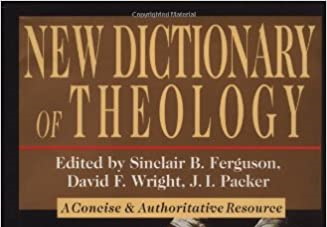Judgment of God

JUDGMENT OF GOD. The belief that God passes judgment on the lives of his human creatures is important for Christianity, as it is for most of the world's religious traditions (see, e.g., S. G. F. Brandon, The Judgment of the Dead, London, 1967). In the OT divine judgment commonly takes the form of earthly blessing (e.g. harvest, national security) for obedience to God's commands, and punishment (e.g. plague, earthquake, exile) for disobedience. But the NT presupposes the belief, developed in apocalyptic literature, in a great assize at the end of history. A doctrine of judgment based on the NT would include the following elements:
- All people will be judged, both ?the living and the dead? (Acts 10:42), both Christian and non-Christian (Rom. 14:10?12). This future judgment is associated with Christ's final coming (Mk. 8:38; 1 Cor. 4:5; 2 Thes. 1:5?10; and see Eschatology).
- Judgment will be ?according to works? (Mt. 16:27; Rom. 2:6; Rev. 22:12). This does not conflict with justification by grace through faith. Although justification is a gift of God's free grace, it involves the obligation to work out our new status in practice. Thus, at the final judgment, a person's works will be the evidence of whether a living faith is present in him or not. It is not a question of earning salvation by good works: works are the evidence of the reality of the faith through which we are saved.
- The final judgment will be a moment of division between those who are revealed truly to belong to Christ and those who do not. It will not be arbitrarily imposed from on high. Rather, the verdict of the final judgment will underline and make known the self-judgment which men and women have chosen during the present life. There is a real sense in which, by the choices people make, by the way they respond when confronted by Christ and his gospel, they bring judgment on themselves. This idea of a present self-judgment is prominent in John's Gospel (e.g. 3:19?20) but is not peculiar to him (Mt. 10:32?33; Rom. 1:18?32).
- Salvation and condemnation are best understood in terms of relationship or nonrelationship to God. The criterion by which people's destinies will be determined is a double one?their failure to worship and serve the God revealed in the created order (Rom. 1:18?20), and their attitude to Christ?their relationship to him, of which their deeds give evidence (Jn. 3:36). The destinies themselves consist in being either in God's presence or excluded from that presence (cf. 2 Thes. 1:8?10).
In modern times the image of the great assize has for many people lost the power which it held throughout much of the church's history. But it serves to safeguard important truths: judgment is serious, just, inescapable. It is judgment under the searching gaze of holy love, judgment by Christ himself.
Recent discussion has considered whether divine judgment can be perceived in the events of history (see D. Bebbington, Patterns in History, Leicester, 1979); on what basis God may judge those who have not heard the gospel; and whether the possibility of eternal condemnation is consistent with his love (see Universalism).
Bibliography
J. A. Baird, The Justice of God in the Teaching of Jesus (London, 1963); J. P. Martin, The Last Judgment (Edinburgh, 1963); L. Morris, The Biblical Doctrine of Judgment (London, 1960); S. H. Travis, Christ and the Judgment of God (London, 1986). See also Bibliography for Eschatology.
This article is from the New dictionary of theology (electronic ed., p. 358).
Dr. Stephen Travis was Vice-Principal of St John's until his 'retirement' in 2005, but continues to teach occasional courses and to work on audio-visual projects in College.
